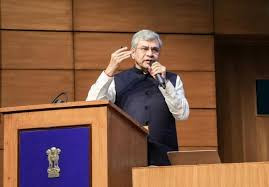“Karan Kundrra Defends Tejasswi Prakash: ‘Possessiveness’ Often Misread, Experts Urge Communication”

IIE DIGITAL DESK : Karan Kundrra has publicly pushed back against a steady stream of public interpretations about his partner Tejasswi Prakash’s personality, saying what many call “possessiveness” is frequently misunderstood and rooted in close, selective bonding rather than disrespect. Speaking on a popular podcast, he explained that Tejasswi does not measure people by wealth or status but by their work and commitment; when she forms a deep connection, she expresses herself candidly and protects what she values—behaviours that onlookers sometimes mislabel without context.
Kundrra described their dynamic as one where Tejasswi will not be dominated—she demands reason and logic and responds to arguments grounded in sense rather than status, a trait he framed as street-smart assertiveness rather than aggression. His remarks underline a recurring tension for public couples: private relational patterns can be flattened into shorthand labels by social media and gossip, stripping them of nuance.
Mental health professionals say this confusion between possessiveness and control is common and avoidable. Psychologist Sonakshi Bhargava told the publication that possessiveness often stems from love, care and fear of loss, whereas control is about dominance and restriction; the difference lies in intent and impact. She advised that with open communication, trust-building and self-awareness, possessive feelings can be reshaped into secure closeness rather than possessive claustrophobia.
Bhargava also stressed that assertiveness and straightforwardness—qualities many admire—can be misread without empathetic dialogue. Active listening, “I” statements, and regular emotional check-ins help translate blunt honesty into constructive honesty; when partners convey motives and vulnerabilities, traits like directness become strengths that deepen the relationship instead of pushing others away.
The episode highlights a wider cultural tendency to equate sociability with popularity. People who prefer fewer but deeper bonds are often mistaken for aloofness. Experts recommend reframing the conversation: valuing emotional depth over social breadth, and encouraging partners to articulate their needs so selective closeness is understood rather than judged. Kundrra’s comments, and the psychologist’s perspective, together argue that what the public calls “possessiveness” often masks attachment, loyalty and a demand for mutual respect—elements that, when handled with care, strengthen rather than undermine a relationship.
You might also like!

























